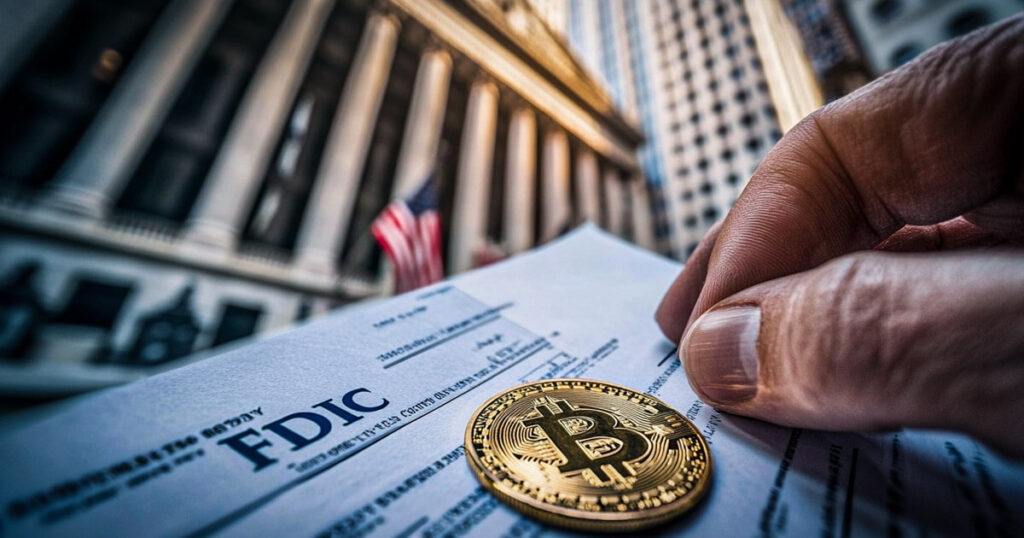
The Federal Deposit Insurance Corporation (FDIC) is preparing to revise its guidelines for banks involved in crypto-related activities, Barrons reported on 5 February.
The changes would enable banks to participate in certain crypto-related activities without prior approval of the regulations. Some banks have reportedly dealt with government officials to argue for offering crypto guardianship services and exploring deposits as a potential alternative to Stablecoins.
These tokenized deposits can integrate checking accounts with blockchain technology, which indicates a shift into the adaptation of bank infrastructure to the evolving landscape of digital assets.
New documents with regard to break utensils
On 5 February, the FDIC released 175 documents related to its supervision of banks involved in or try to participate in crypto services, which emphasizes a shift in the attitude of the office.
The documents relate to the ‘break loans’ from 2022, which the FDIC has sent to 24 financial institutions and advises them to stop or prevent crypto-related services being offered.
In a statement, FDIC said Chairman Travis Hill said:
“Our decision to release these documents reflects an obligation to improve transparency, further than what is necessary by the Freedom of Information Act (FOIA), while also trying to meet the spirit of the FOIA request.”
The FOIA request was submitted by Coinbase on October 18 and seeks clarity for an alleged deposit ceiling of 15% imposed on crypto-friendly banks. The FDIC met the request in December 2024, although the documents were severely edited. One less censored version was published on January 3.
Coinbase Chief Legal Officer Paul Grewal said that the supervisor retained information because two more letters were included in the uncensored documents.
In a February 5 X afterHe repeated the allegations and claimed that the FDIC waS Hide more breaks.
Resistance by FDIC
Hill assessed that the released documents revealed that requests from banks who were looking for crypto-related services ‘almost universal resistance’, because the FDIC repeatedly left for further information and remained silent for months.
He added:
“Both individually and collectively, these and other promotions sent the message to banks that it would be extremely difficult – if not impossible – to move forward. As a result, the vast majority of the banks just stopped trying. “
Grewal emphasized documents from the FDIC-SHARED documents that he thought the banks folded under the pressure of the regulator’s threats. He said that the FDIC banks often put pressure under pressure by executing a ‘regulation by exhaustion’.
This tactic included sending a first letter in which the interruption of a crypto-related service was urged and to request clarification. After the bank answered the FDIC requests, the regulator placed them on hold, so that the bank had left its crypto-related offer.
According to the documents, the FDIC BTC volatility, reputation risk and the risk of consumer protection stated as the main reasons for its decision to pause services.
Caitlin Long, founder and CEO of Custodia Bank, noted Multiple cases in the released documents, including the internal chats of FDIC officials, where the word “deposit” was mentioned.
According to Long, Deposito is a term used to tackle the dollars soaked deposits. A piece of one of the internal chats in the documents states that they stay away from crypto deposits, which she rated as the official saying that he received deposits from crypto companies.

